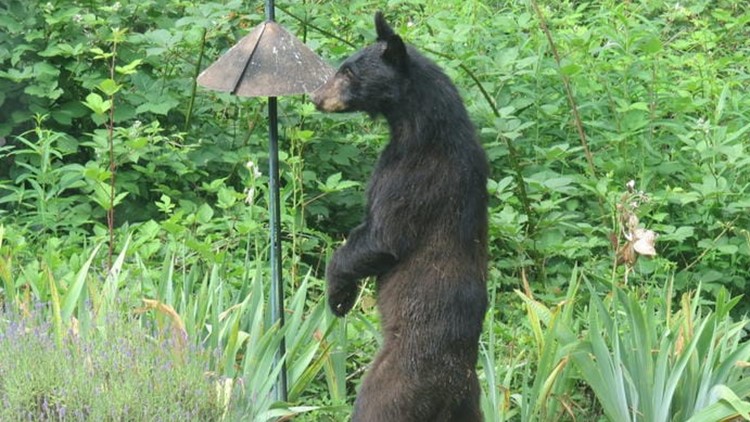Seattle — One of the great qualities of living in the northwest is being close to nature, and this includes having possible encounters with wildlife... sometimes in your backyard.
From the Department of Fish and Wildlife, Sergeant Jennifer Maurstad discusses what to do if you come across an unexpected visitor at your next picnic outing or even right outside your door.
To avoid encounters with black bears while hiking or camping:
- Keep a clean camp. Put garbage in wildlife-resistant trash containers.
- Store food in double plastic bags and, when possible, place the bags in your vehicle's trunk or in wildlife-resistant food lockers. Double-wrapped food may also be placed in a backpack or other container and hang it from a tree branch at least 10 feet above the ground and 4 feet out from the tree trunk. Never store food in your tent.
- When camping, sleep at least 100 yards from your cooking area and food storage site.
- Hike in small groups and make your presence known by singing or talking.
- Keep small children close and on trails.
If you come in close contact with a bear:
- Stay calm and avoid direct eye contact, which could elicit a charge. Try to stay upwind and identify yourself as a human by standing up, talking and waving your hands above your head.
- Do not approach the bear, particularly if cubs are present. Give the bear plenty of room.
- If you cannot safely move away from the bear, and the animal does not flee, try to scare it away by clapping your hands or yelling.
- If the bear attacks, fight back aggressively. As a last resort, should the attack continue, protect yourself by curling into a ball or lying on the ground on your stomach and playing dead.
The Department of Fish and Wildlife responds to cougar and bear sightings when there is a threat to public safety or property. If it is an emergency, dial 911.
If you encounter a cougar or black bear problem, and it is not an emergency, contact the nearest regional Department of Fish and Wildlife office between the hours of 8 a.m. and 5 p.m., Monday through Friday. In King County, the number to call is (425)775-1311.
If you need to report a non-emergency problem when Department of Fish and Wildlife offices are closed, contact the Washington State Patrol or nearest law enforcement agency.
Watch New Day Northwest 11:00 weekdays on KING-TV Ch.5 or streaming live on KING5.com. Connect with New Day via Facebook, Twitter, Instagram.



